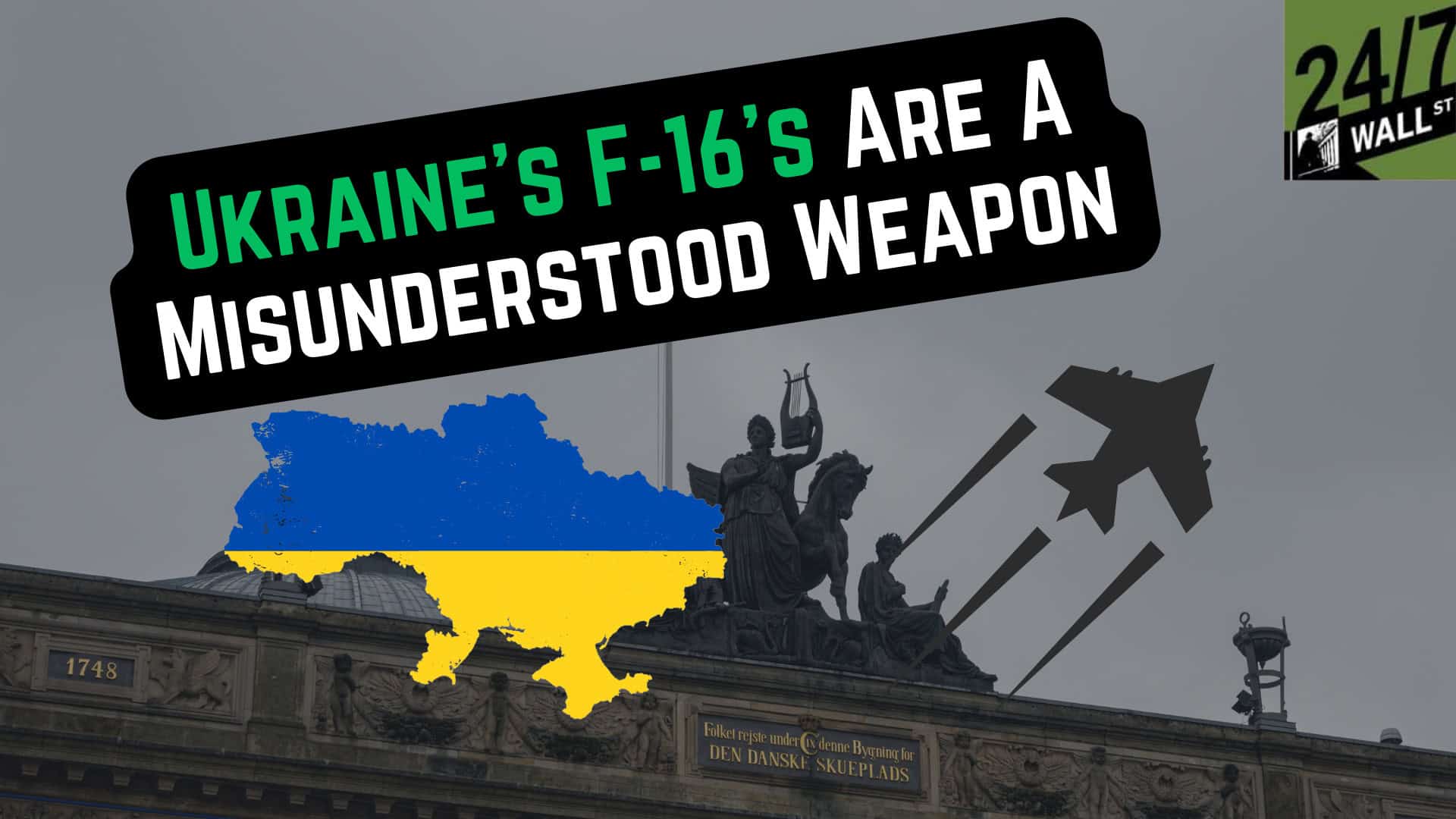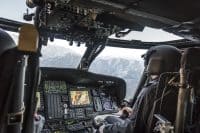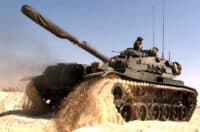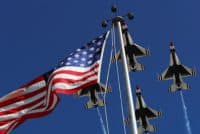
Key Points:
- Russia doesn’t currently have full air superiority, which has prolonged the conflict.
- Ukraine’s limited F-16s and air defense capabilities are crucial but insufficient for significant impact.
- Strengthening Ukraine’s air power could improve its negotiating position, making a peace deal more favorable.
- Also: Smart money is placing bets for 2025’s best investment, and “the next Nvidia” is a frontrunner. Click here to learn more now.
Austin and Michael discuss the complexities of Ukraine’s position in the ongoing conflict with Russia, particularly focusing on the importance of air superiority. Michael points out that while some suggest Ukraine should seek a peace deal due to Russia’s larger resources, the lack of air superiority on either side has prolonged the war. Ukraine’s ability to strengthen its air capabilities with F-16s could significantly impact its negotiating position, as it would force Russia to pull back certain assets, thus weakening their combat efficiency. They also touch on how strategic moves like improving air defenses could help Ukraine seize the initiative, which is crucial in strengthening its position for future peace negotiations.
Watch the Video
Edited Video Transcript:
Point.
And maybe to bring this back home to Ukraine, a topic that people have suggested, which is, you know, Ukraine should just seek a peace deal.
And, you know, in a war of attrition, the math seems to suggest that on a long enough timescale, Russia wins.
And while everybody’s maybe been impressed at the resilience and effectiveness of the Ukrainian army this long, math is still math.
Russia is a larger, wealthier country with a greater population and seemingly a willingness to, you know, win any war of attrition.
But bringing all this together, Ukraine is going to have an extremely difficult hand.
Uh, negotiating for peace if they do not have air dominance or air superiority.
Yeah. Right.
If Russia continues to have air superiority as arguably they do, um, that puts Ukraine in a significantly weaker position.
So a good deal of this doesn’t necessarily need to be considered offensive.
It may be sort of like, you know, although the Kursk invasion was offensive, a good deal of this could be simply strengthening Ukraine’s hands so that they,
You know, if Russia loses air superiority and Ukraine has some Russian territory that they can negotiate with, does that strengthen Ukraine’s hand to get a peace deal done quickly on their terms as opposed to the peace deal that they simply have to accept before their entire country gets overrun?
I’m curious your thoughts on that and if that’s a valid way to view this.
I think that’s an excellent point, although I would suggest that Russia doesn’t necessarily have air superiority at this point.
In fact, that’s actually one of the reasons why the war has gone on so long as it has.
Ukraine has done, has worked miracles in the air war.
A lot of their air defense, which is quite robust, is ground based.
And then just bringing in F-sixteens.
The problem right now is there’s just not enough of them to make a significant impact.
And then the pipeline is not large enough to quickly fill that gap.
But the reason why we’re seeing two lines of trenches is because neither side enjoys significant air superiority.
To be sure, the Russian air force is much larger and more modern than Ukrainian, but they are struggling to really impose their numerical advantage in a fairly narrow theater.
And the other aspect of having F-sixteens and that we did touch upon and an example we saw with Kursk is just this ability to seize the initiative.
That’s a really important strategic aspect of conflict.
Ukraine is trying to show that it’s not just reacting to what Russia is doing, it is making its own moves.
And then everything that it does, um, things like Kursk or improving its air situation again.
If it has F-sixteens with a good operational range and that means that Russia is going to have to pull back certain assets that it has on the ground to keep them out of harm’s way, which is going to reduce the combat efficiency of its units.
And where Ukraine is struggling the most and where it’s losing the most ground is on the eastern front.
So all of these things can contribute to improving the situation on the east, which in turn, to get to your point, can strengthen Ukraine’s negotiating position long term.
So that was an excellent point that you brought up there.
Well, thank you.
I appreciate that compliment.
Take Charge of Your Retirement In Just A Few Minutes (Sponsor)
Retirement planning doesn’t have to feel overwhelming. The key is finding expert guidance—and SmartAsset’s simple quiz makes it easier than ever for you to connect with a vetted financial advisor.
Here’s how it works:
- Answer a Few Simple Questions. Tell us a bit about your goals and preferences—it only takes a few minutes!
- Get Matched with Vetted Advisors Our smart tool matches you with up to three pre-screened, vetted advisors who serve your area and are held to a fiduciary standard to act in your best interests. Click here to begin
- Choose Your Fit Review their profiles, schedule an introductory call (or meet in person), and select the advisor who feel is right for you.
Why wait? Start building the retirement you’ve always dreamed of. Click here to get started today!
Thank you for reading! Have some feedback for us?
Contact the 24/7 Wall St. editorial team.




